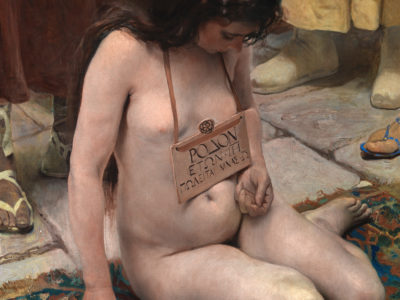CHRISTIANS NOT ONLY FAILED to speak out against slavery in Bible times. Christians owned slaves.
Apostle Paul went so far as to send one runaway slave back to his master—even though the master would have had every right under Roman law to execute the runaway.
The slave was Onesimus, a young man apparently converted by Paul.
The slave owner was Philemon, leader of the church in Colosse, a city in what is now Turkey. Christians met for church in Philemon’s house.
Let’s play fair with Paul. He sent Onesimus back with a letter publicly pressuring Philemon to free the slave and let him work as Paul’s associate. It may have worked out that way, too. A man named Onesimus later became leader of the church in neighboring Ephesus. It might have been the same Onesimus.
It’s anyone’s guess why Christians didn’t take a stand against slavery.
Theory 1. Maybe it’s because slavery was so programmed into the culture that it was hard for anyone to see it as wrong. Many Christians had that same trouble in the 1800s—cue the American Civil War.
Theory 2. If Christians had lobbied for freedom, Romans might have started seeing Christianity as a threat to their way of life—and might have hammered Christians even harder than they did.
Instead of condemning slavery, Paul—chief spokesman for the Christian movement—advised mutual respect between master and slave.
That alone planted the seeds for freedom.
How could it not? Wouldn’t it seem a tad awkward to enslave someone we respect?
And if we did, how could we respect ourselves?


Of course, slavery at that time was not quite the same as what we would see in US history, either.
It could get pretty nasty for those slaves. Roman historian Dio Cassius (about AD 150-235) told about a vicious slave master named Vedius Pollio of Rome who stocked his pool with moray eels so he could recycle his bad slaves into fish bait. You’ll find a short sidebar about that on p. 459 of The Complete Guide to the Bible.